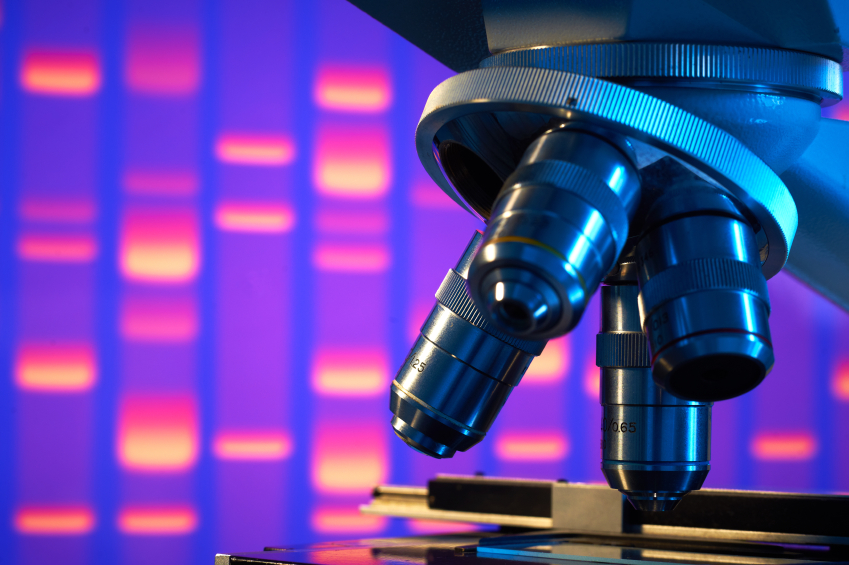Pluripotent adult stem cells
Two research teams – one Japanese, directed by Shinya Yamanaka, from the University of Kyoto, and the other one, American, directed by James Thompson, from the university of Wisconsin-Madison – announced to have succeeded in creating human pluripotent stem cells lines from fibroblasts, cells constituting the epidermis. These works have been published respectively in the scientific magazines Cell and Science in November 2007. Human skin cells have been reprogrammed, by introducing four different genes through a retrovirus, to be transformed into cells, called iPS, having the same properties as embryonic stem cells; in other words capable of differentiation into various types of human body cells. This revolutionary advance is the application to human of the first discovery made by Yamanaka: in August 2006, by inserting four genes in mouse skin cells, he obtained cells with the same potential of embryonic stem cells (v. Gènéthique n°90). This new technique would also have the advantage to eliminate any risk of transplantation rejection, as it should allow creating stem cells with the same patient’s genetic code. Since then, researchers from Whitehead Institute for Biomedical Research, Cambridge (Massachusetts) declare to have cared, with these cells, drepanocytic mice and S. Yamanaka succeeded in eliminating the risk of tumour pulling aside the responsible gene.
Ian Wilmut renounces cloning
“These results lead us in a totally new era of biology of stem cells”, expressed Professor Ian Wilmut from Roslin Institute of Edinburgh. The scientific “father” of the cloned sheep Dolly has just announced he will abandon his researches on cloning, for the benefit of production of stem cells without embryo. Then he renounces exploiting the licence he obtained, two years ago, to clone human embryos and wants to join Professor Yamanaka’s researches which seem to be more promising than those on embryos. “Now we can envisage the moment when a simple method will be used to generate any tissue from a very small sample taken from any one of us”.
Reactions of scientists
For Jean-Claude Ameisen, chairman of Inserm ethics committee, “the work of Yamanaka real scientific revolution, proves that it is possible to reprogram ordinary adult cells and shows that plasticity of cells is greater than we thought. With this technique, we cannot say anymore: there is no other way (than the research on embryo editor’s note).” Jean-Claude Ameisen also says: “10 years have passed between the first cloned sheep and the first cloned primates, 15 years have been necessary to pass from mouse embryonic stem cells to human embryonic stem cells and only one year was necessary for S. Yamanaka to pass from his discovery on animal to its application on human”. Regarding Axel Kahn, director of Cochin Institute, he estimates that “in the perspective of the regenerative medicine, it is the most important advance since the birth of Dolly, ten years ago”. In the context of the revision of bioethics laws foreseen in 2009, he adds that “it is not urgent to authorise the creation of embryonic stem cells by nuclear transfer for therapeutic purposes” (in other words the cloning, editor’s note).
Cord blood stem cells
Within another field which is also promising, during the conference on adult stem cells and cord blood cells, organized in the Senate on last 22 December, Dr Nico Forraz (University of Newcastle) announced the future launching of an international consortium about research on cord blood stem cells, called Novus Sanguis. Created by Pr Colin McGuckin’s team (University of Newcastle) and the Jérôme Lejeune Foundation, Novus Sanguis will gather laboratories from various countries.
Embryonic research: impasse
As Pierre-Olivier Arduin, in charge of the commission on Bioethics of the diocese of Fréjus-Toulon shows it, regarding these advances; it seems that France “persists in scientific absurdity” supporting embryonic research. No scientific publication mentions a treatment based on embryonic stem cells, particularly because they have an important chromosomal instability and are carcinogenic, whereas big industrial groups like L’Oréal or LVMH invest in research on adult stem cells. This “enormous discrepancy … is heavily questioning the authorisation decisions of research protocols by the Agency of biomedicine. The decriminalisation of research on embryo is, according to the law, subject to two conditions: one of “being susceptible to allow major therapeutic advances” and the other one “of not being followed by an alternative method of comparable efficacy”… When’s a claim from ill patient associations against the State for non-application of the law of 4 August 2004?” 1
1. Décryptage, 22 novembre 2007

